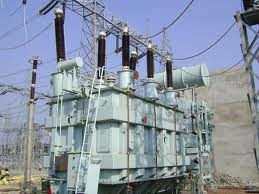Lagos Expands Power Distribution Through Independent Power Project
The Lagos State government at the weekend inaugurated the second phase of the Island Power Project (IPP), expanding power distribution from the plant to more facilities in the area.
The IPP, which runs on natural gas, still maintains its 10mw capacity despite the increase in distribution network.
The extension of the plant, financed by Fidelity Bank Plc, increased the power distribution network from 18km to 57km. Also, the number of substations was increased from 22 to 120, while the number of Lagos State facilities powered by the project was increased from 10 to 38. It also increased the amount of public lighting from 12.6km to 70.7km.
At the event, Lagos State Governor, Mr. Babatunde Fashola said the expansion of the IPP was another milestone in his administration’s resolve to provide stable power to residents of the state.
Fashola, who was represented by the Commissioner of Energy and Mineral Resources, Lagos, Taofiq Tijani, an Engineer, added: “The reason we are doing this is because the state gets only 10 per cent of the power it requires from the national grid.
This project ensures every day power supply. “It provides uninterrupted power supply to crucial Lagos state facilities within the health, education, security, water, waste management, science and technology, judiciary, sports and transportation sectors in Lagos.”
The Governor said: “In the health sector, 32 wards, 575 beds, 15 incubators and 156 cooling chambers now functions on uninterrupted power supply which I am glad to say has reduced mortality rate.
Within the education sector, 180 classrooms, 39 laboratories and 5724 students all benefit from this project.”
In his remark, the Chairman, Nigerian Electricity Regulatory Commission (NERC), Dr. Sam Amadi described the Lagos State Electricity Board as the most innovative in the country, especially in terms of creativity and sense of energy needs.
“What is distinctive about Lagos is targeting interventions to deal with issues of development in specific areas. States should learn from Lagos and think strategically to generate power where you have comparative advantage.
“NERC has been a good partner with Lagos. As a regulator, our job is to facilitate access to electricity and we are always ready to support states and private who have projects that need our support.
“We will continue to support Lagos state because we believe in the vision of the governor and we recognise the enterprise of the people of the state,” Amadi added.


